Researchers in Switzerland show that hydrogen injections into magnetically-contained plasma can double to yield significantly more energy.
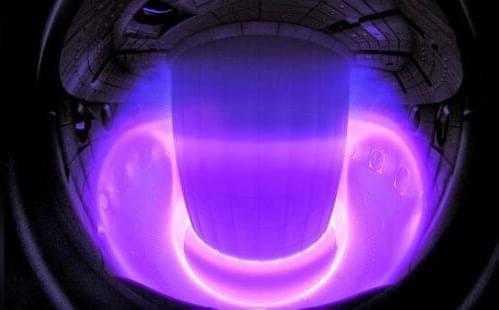

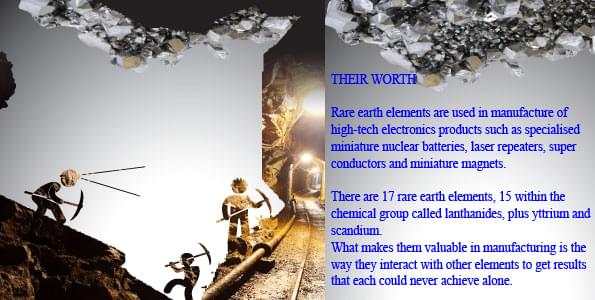
Eric KlienAdmin.
The U.S. government discouraging the opening of new mines is duplicating the problem that Europe had with energy and Russia. (It takes 10 years to get a new mine approved in the U.S.)
Omuterema AkhahendaAdmin.
I dunno if this rare earth is worth anything.
Astronomers spot signs of planets forming around dying stars.
Leading bipartisan moonshots for health, national security & functional government — senator joe lieberman, bipartisan commission on biodefense, no labels, and the centre for responsible leadership.
Senator Joe Lieberman, is senior counsel at the law firm of Kasowitz Benson Torres (https://www.kasowitz.com/people/joseph-i-lieberman) where he currently advises clients on a wide range of issues, including homeland and national security, defense, health, energy, environmental policy, intellectual property matters, as well as international expansion initiatives and business plans.
Prior to joining Kasowitz, Senator Lieberman, the Democratic Vice-Presidential nominee in 2000, served 24 years in the United States Senate where he helped shape legislation in virtually every major area of public policy, including national and homeland security, foreign policy, fiscal policy, environmental protection, human rights, health care, trade, energy, cyber security and taxes, as well as serving in many leadership roles including as chairman of the Committee on Homeland Security and Government Affairs.
Prior to being elected to the Senate, Senator Lieberman served as the Attorney General of the State of Connecticut for six years. He also served 10 years in the Connecticut State Senate, including three terms as majority leader.
In addition to practicing law, Senator Lieberman is honorary national founding chair of No Labels (https://www.nolabels.org/), an American political organization composed of Republicans, Democrats and Independents whose mission is to “usher in a new era of focused problem solving in American politics.”

Researchers from Rice University claim that processing boron nitride nanotubes used to be challenging, but not anymore.
Professors Matteo Pasquali and Angel Martí, along with their team of researchers, have simplified the handling of the highly valuable nanotubes, making them more suited for use in large-scale applications including electronics, aerospace, and energy-efficient materials.
According to the study’s findings published in Nature Communications, boron nitride nanotubes, also known as BNNTs, can self-assemble into liquid crystals when exposed to certain circumstances, particularly concentrations of chlorosulfonic acid that are greater than 170 parts per million by weight.
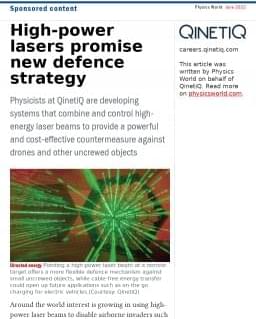
Physicists at QinetiQ are developing systems that combine and control high-energy laser beams to provide a powerful and cost-effective countermeasure against drones and other uncrewed objects.
Around the world interest is growing in using high-power laser beams to disable airborne invaders such as drones and other uncrewed objects. These so-called directed-energy systems have the potential to damage or destroy small aerial devices at a fraction of the cost of launching conventional defence missiles or munitions. They have the added advantage that they can be reused many times to counter multiple attacks as well as the growing threat of drone swarms.
At QinetiQ, a UK-based technology company specializing in defence and security solutions, around 10 years of research effort into the physics underpinning these directed-energy systems has demonstrated enough potential to start building and testing practical prototypes. “We have taken a high-risk, high-reward approach to developing these systems,” says Richard Hoad, capability area lead for novel effectors and resilience at QinetiQ. “Our company and our customers in the defence sector have just significantly increased their investment to enable us to prove that our solution is as effective in a wide range of real environments as it is in testing.”
A New Zeland-based designer Henry Glogau has developed Solar Desalination Skylight, a device that uses seawater to create natural ambient light, drinking water, and generates energy from the remaining sea salt.
Glogau’s Solar Desalination Skylight is the finalist of the Lexus Design Award 2021, a competition dedicated to empowering humans to make good things for the future of humanity and the planet. Projects that are finalized and awarded are determined by their positive impact on human society.
It emits a natural light, produces drinking water, and utilizes leftover salt brine for energy creation.
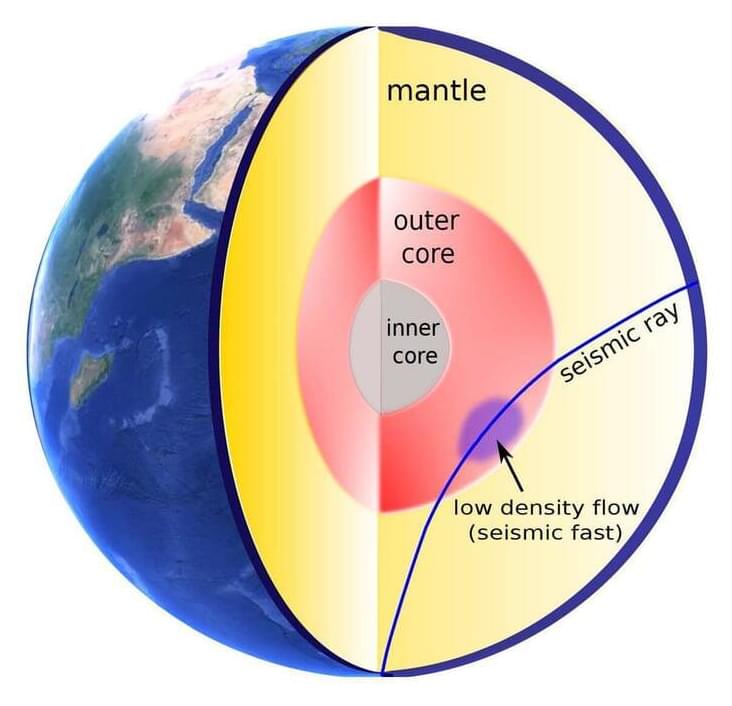
In May 1997, a large earthquake shook the Kermadec Islands region in the South Pacific Ocean. A little over 20 years later, in September 2018, a second big earthquake hit the same location, its waves of seismic energy emanating from the same region.
Though the earthquakes occurred two decades apart, because they occurred in the same region, they’d be expected to send seismic waves through the Earth’s layers at the same speed, said Ying Zhou, a geoscientist with the Department of Geosciences in the Virginia Tech College of Science.
But in data recorded at four of more than 150 Global Seismographic Network stations that log seismic vibrations in real time, Zhou found an anomaly among the twin events: During the 2018 earthquake, a set of seismic waves known as SKS waves traveled about one second faster than their counterparts had in 1997.
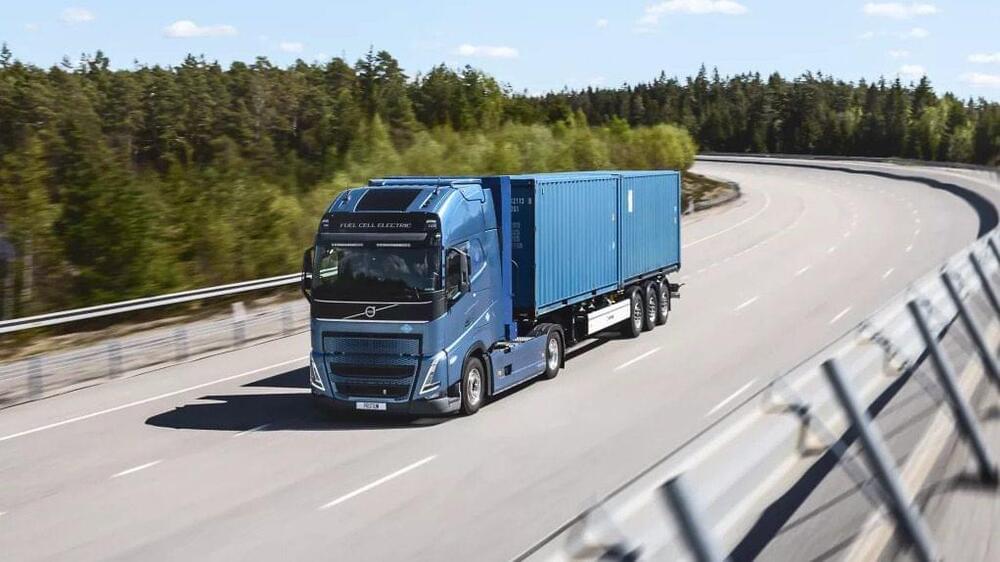
Swedish truck manufacturer Volvo Trucks has unveiled a hydrogen fuel cell truck which the company claims will have a range of up to 1,000 kilometres and a refuelling time of less than 15 minutes.
The hydrogen fuel cell truck will join other zero-emission truck options already on offer, battery-electric trucks and trucks that run on renewable fuels such as biogas.
“We have been developing this technology for some years now, and it feels great to see the first trucks successfully running on the test track,” said Roger Alm, president of Volvo Trucks.
